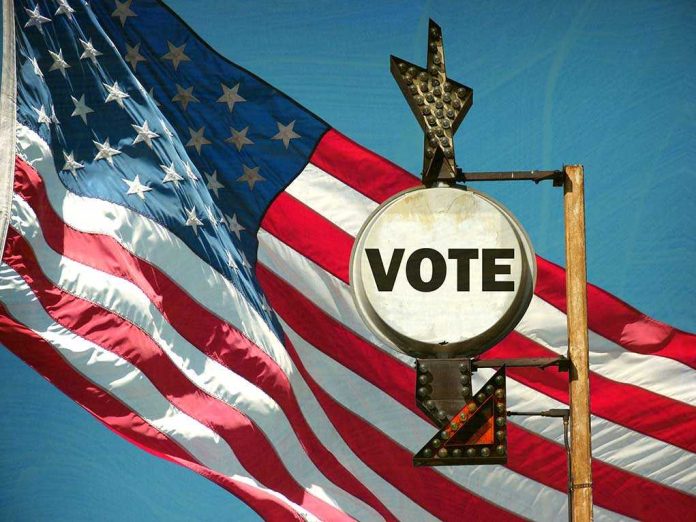
Police unions’ unprecedented silence in the 2025 New York City mayoral race leaves public safety hanging in the balance, as a socialist candidate gains traction and Ray Kelly throws his weight behind Andrew Cuomo.
Story Snapshot
- Former NYPD Commissioner Ray Kelly endorses Andrew Cuomo for NYC mayor amid a fractured political climate.
- Major police unions break tradition by refusing to endorse any candidate, signaling deep internal divides.
- The rise of socialist candidate Zohran Mamdani intensifies concerns about law enforcement and public safety policies.
- NYC’s mayoral race exposes shifting alliances and the uncertain future of police influence in city politics.
Historic Endorsement and Unprecedented Union Silence
In October 2025, Ray Kelly—New York’s longest-serving police commissioner—publicly endorsed Andrew Cuomo’s mayoral bid, breaking from years of nonpartisanship. Kelly’s support comes as a shock to many, given Cuomo’s controversial past and the current political climate dominated by law-and-order debates. Simultaneously, New York City’s police unions have chosen to sit out the endorsement process altogether, a move that has no modern precedent and reflects extraordinary fractures within law enforcement ranks. This silence from the unions leaves voters questioning the future direction of public safety policy as crime remains a top concern for city residents.
The absence of a unified police voice in the election is particularly striking given New York’s turbulent history with crime and policing. Traditionally, police unions have shaped mayoral races, endorsing candidates they see as strong on law and order. Their refusal to take sides in 2025 follows years of internal conflict and public criticism over high-profile controversies, including debates over stop-and-frisk and broader police reforms. This decision has left candidates without the organizational support that often tips the scales in close contests, and has introduced unprecedented uncertainty into the race.
Political Polarization and the Rise of a Socialist Challenge
The 2025 mayoral contest is further complicated by the strong showing of Zohran Mamdani, a socialist candidate whose anti-police rhetoric and radical policies have polarized the electorate. Mamdani’s presence has forced traditional power brokers, including law enforcement leaders, to reconsider their alliances and campaign strategies. Kelly has warned publicly that electing a socialist mayor would be a “tragedy of major proportions,” highlighting widespread fears about public safety and the erosion of constitutional protections. Meanwhile, Curtis Sliwa, the Republican nominee known for his outspoken support of conservative values and police, has failed to secure any union endorsement—another sign of the shifting political ground.
The city’s longest-serving NYPD commissioner, Ray Kelly, endorsed Andrew Cuomo for mayor Monday — but the Big Apple’s major police unions are sitting out the race.
W/ @ccampy https://t.co/Nr855z5TFk
— Craig McCarthy (@createcraig) October 27, 2025
Cuomo’s campaign has seized on Kelly’s endorsement to present itself as the last line of defense against policies that many see as threatening to core American values. With police unions absent from the fray, Cuomo is attempting to position himself as a stabilizing force capable of restoring order and curbing the excesses of left-wing activism. However, his efforts are hampered by lingering scandals and skepticism from conservative voters, many of whom remain wary of his record as governor.
Implications for Public Safety, Conservative Values, and the Constitution
At stake in this election are more than just city budgets and administrative appointments. New York’s next mayor will set the tone for how the city deals with crime, policing, and constitutional rights in the years ahead. The absence of union endorsements, combined with Kelly’s high-profile support for Cuomo and the surge of a socialist challenger, signals a fundamental realignment in the relationship between law enforcement and city politics. This realignment raises concerns about the protection of Second Amendment rights, the preservation of family and conservative values, and the threat of government overreach if radical policies take hold. For many conservative voters, the outcome of this race will serve as a bellwether for the nation, highlighting the challenges of defending constitutional principles in an era of political upheaval.
Law enforcement experts and political analysts alike are watching closely, noting that the neutrality of police unions could diminish their influence and leave communities more vulnerable to policies hostile to individual liberty. The debate over public safety has exposed deep divisions not only among political candidates but also within the institutions tasked with protecting New Yorkers. As the city heads toward Election Day, the absence of a clear law enforcement consensus means that the stakes for constitutional rights and community security have rarely been higher.
Expert and Media Perspectives on a Fractured Political Landscape
Industry experts highlight the rarity of police unions’ neutrality, interpreting it as a sign of both internal discord and the declining influence of traditional power brokers in city politics. Academic commentators warn that without clear law enforcement support, future public safety policy could become unpredictable, endangering both the city’s economic stability and its social cohesion. Media outlets and talk shows have amplified these concerns, with conservative voices urging vigilance against policies they believe undermine the Constitution and threaten the values that underpin American society. The events of this mayoral race may well reshape how law enforcement, voters, and elected officials interact—not just in New York, but across the country.
Limited data suggests that other major cities are closely monitoring New York’s political experiment, recognizing that the city’s approach to police-political relations may soon become a model—or a warning—for the rest of the nation. The realignment of law enforcement endorsements and the rise of radical challenges underscore the importance of maintaining vigilance to safeguard constitutional rights, especially as the political climate grows ever more polarized.
Sources:
Raymond Kelly’s biography and NYPD tenure
Kelly’s public warnings and endorsement
Sid & Friends: Real-time political commentary and debate coverage
Matzav: Mamdani’s campaign and controversies
City Journal: Background on Kelly and policing in NYC




